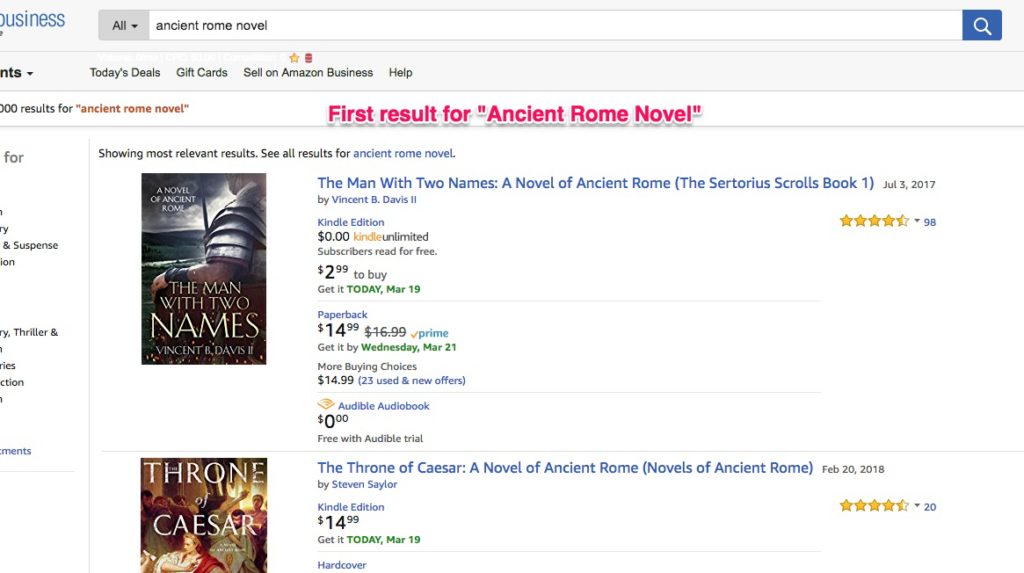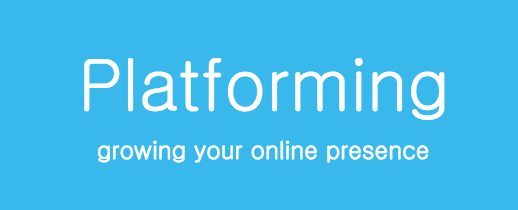Last month we talked about categories. Now we’re going to dig into the other side of the metadata equation: keywords.
Nailing your Keywords
Your keywords are the 7 (on Amazon) particular words/phrases that you’d like your book to come up under if someone searches for them. Most authors make the mistake of picking a few descriptive terms like “bible study” or “romantic comedy”. Unless you’re a NYT Bestseller, it’s unlikely that you’ll rank first on this page of results.
Alternatively, some people pick keywords that no one is interested in or actually typing in. If you are trying to rank in ultra-competitive keywords, you’re in shark-invested waters without a float. If no one is searching for the keywords you’re using, you’re in the desert. So what’s the key? Picking keywords that are being searched for often, but don’t have much competition. There is a fine line, and it’s a tightrope to balance.
There’s a statistic that says if your book ranks first overall for a search term, there is a 27% chance a shopper will click on your book. If your book is the second result, that number drops to 12%. The odds of someone clicking on your book if it ranks on the second page are only 7% (for all 10-15 results on the page).
So, you want to be on that first page, and you want to be that first result if possible. But you also want to make sure there are people actually interested in that keyword.
Your job is to research various terms related to your book and analyze the market for it. You need to break down the monthly traffic volume for each possible term, and then look at how fierce the competition is based on the highest-ranking titles’ sales rank. With these numbers in mind, you can choose the 7 most effective keywords to keep your book visible to the right audience.
Pro Tip: How do you analyze the traffic of each term? Well that’s a good question. I use a tool called KDP Rocket to analyze traffic data for all of my clients. It digs into the Amazon numbers to tell you just how often (per month) a term is being searched for, and how competitive that term is. You might be surprised by the results. This is the best tool I’ve found to help with keyword research.
Putting It All Together
Optimizing your metadata might not become a bestseller overnight. It doesn’t have the kind of immediate effect that ad campaigns or discount promotions have. But what it does give you is a competitive advantage and the ability to maintain long-term success from the short-term sales strategies. By updating your categories and keywords, you instantly become more discoverable to target readers, and that is always a good thing.
Vincent B. Davis II is an author, entrepreneur, speaker, and soldier. His first novel The Man with Two Names was published in July 2017 and has since become an Amazon International Best Seller. He is passionate about helping authors improve their brand and platform. He works with publishing companies and individual clients to help them sell more books in the modern publishing environment. Vincent is also the Senior Editor for blueridgeconference.com. If you are interested in contributing a blog for the site, or have any other queries, you can reach him at Vincent@thirteenthpress.com








1 Comment
That’s awesome! Thanks so much for sharing!